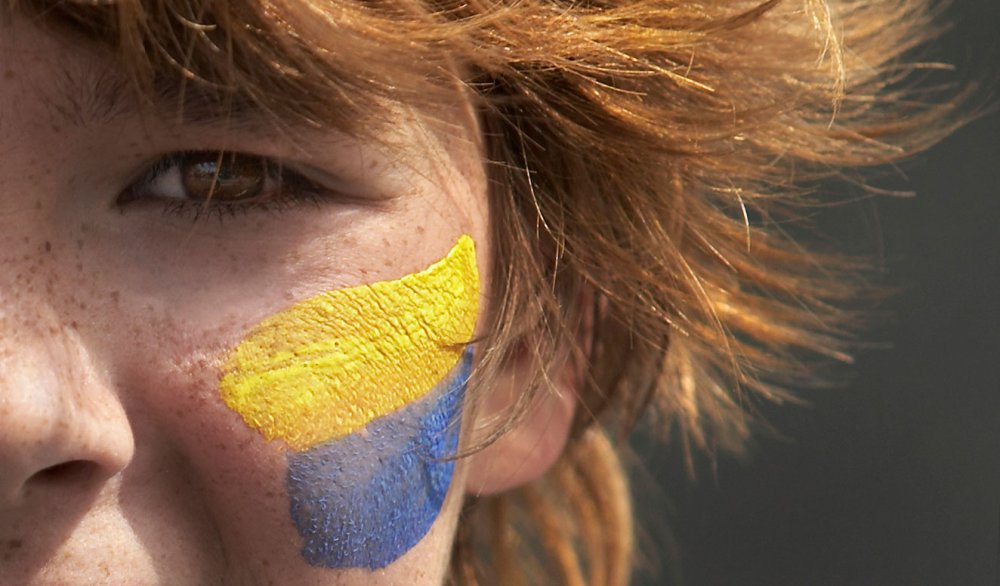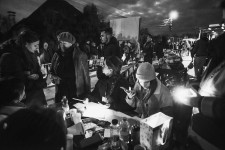On 24 February 2022, the war unleashed at dawn by the Russian Federation in Ukraine woke Iryna Gorbacheva from her sleep. She lived a comfortable life in her hometown of Zaporizhzhya, where she had an IT firm and a loving family. She travelled often, but had no plans to emigrate. In an instant, her life changed. She spent the next week in shelters, with her eight-year-old daughter. It was there, in the basements soaked with the fear of people surprised by explosions, that her first year as a refugee was to begin, a life where there are no long-term plans, material possessions are a burden and survival is a lesson already learned.
"We never stoped thinking we want to go back. But we would want to go back to our old life. However, when we'll get back there, it will already be another life. Now our city, with so many ruined buildings, is probably hard to recognise. Yes, the city is destroyed. But that doesn't change the fact that I want to head back to my apartment and have a cup of black tea while sitting on my couch. And it doesn't change the fact that I want to be there to help rebuild."
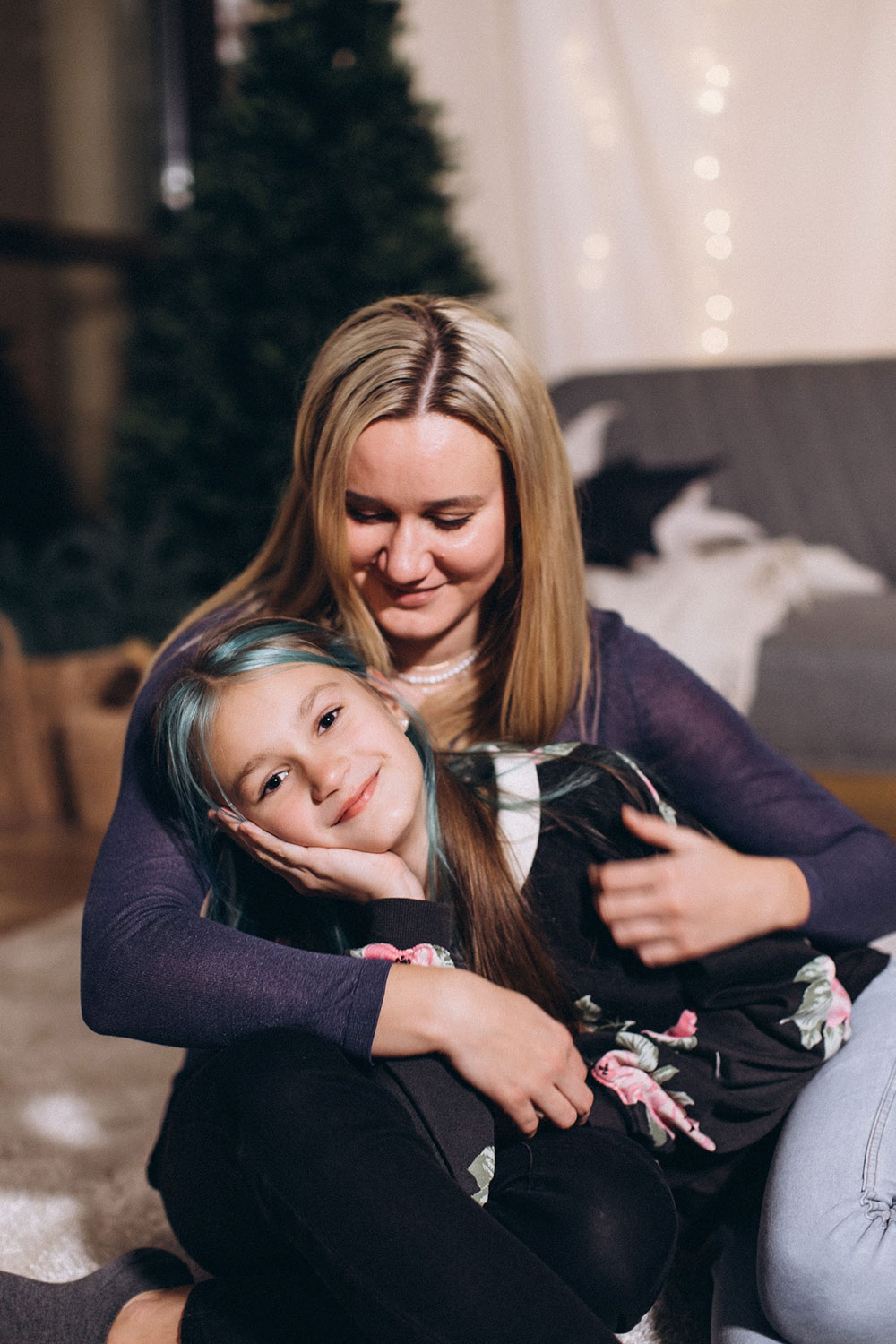
Destination of an undesirable journey
At the beginning of March 2022, Iryna, together with her parents and her daughter, arrived in Iasi after an exhausting journey. "I am from Zaporizhzhya, here many people write it Zaporoje or Zaporozhye. Our town is now in the front line of the war, the Russians are only a few kilometers away. The town has been under attack since day one. That's how I woke up that morning of February 24, with bombs flying all around my house, car alarms going off all at once, relentlessly. I spent the first week of the war in a shelter, together with my daughter, sleeping on the ground. We got sick, we got cold, many people were already in a terrible state, scared, frightened. My daughter was terrified too, with all those alarms wailing around. But when the Russians first arrived at the nuclear plant outside our town, that's when we got really scared. Really scared! And that's when we decided we had to leave," says Iryna.

She never intended to come to Romania, not on holidays and not even now, as a refugee. "We had no plans to come to Romania, our destination was Bulgaria. I knew that in Bulgaria they speak a language that is quite similar to ours and I thought that it would be easier for my parents to communicate and get along with people there. But our journey here was so long... It's about 1,000 kilometers from our home to get here, but it took us four days to make it to Iași. Sometimes because of traffic jams, sometimes because we had to hide", explains Iryna how the brief stopover in Iasi turned into the final destination of this undesirable journey.
History, an old story
They chose Iași because it's closer to the border and they'll have less to drive back home. "We decided to stay. And we loved it. We like the place, the city, but most of all we love the people here. We found a home and straightaway we had a lot of neighbours showing up, asking how they could help us. From the very first day they brought us food, pillows, blankets. We instantly felt safe here," says Iryna.
Iryna quickly became part of the life in Iași, helping Ukrainians. "I think there are about 3,000 to 4,000 Ukrainians in Iași right now, I don't know the exact numbers. But in the autumn I heard that there were many who had left for Western countries and are now coming back. They didn't adapt there. Life is cheaper here. But most say they come back because of the people there, who are very cold. Also, Romania doesn't enforce conditions like Germany; there you have to register your children in schools where they study in German, for example."
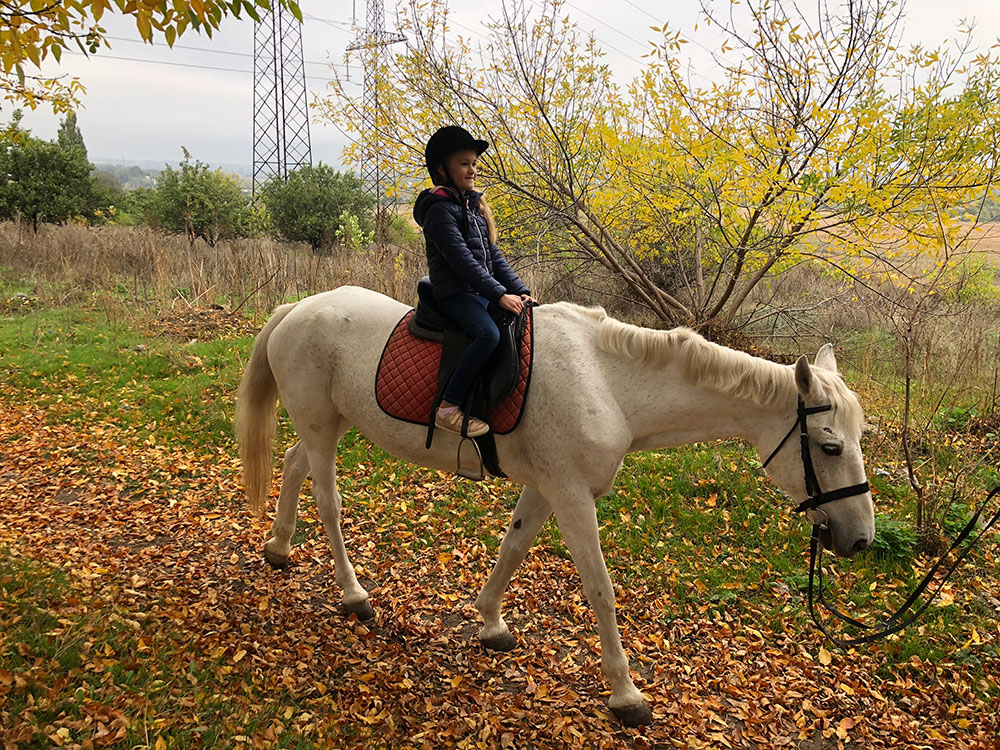
Iryna didn't enroll her daughter in a Romanian school either, so she wouldn't have to miss a year when they return home. Since fall, the girl moved up to third grade with her former Ukrainian classmates through online classes. "If I were to have her enrolled in a Romanian school, she would miss at least a year in preparatory classes. There are a few schools set up in Romania for Ukrainian children, in Ukrainian, but they learn the history of Romania, not that of Ukraine. Maybe it's a good choice for those who intend to stay here, but those who intend to return want their children to learn Ukrainian history."
Bag bottom
At first, Iryna delayed looking for a job, preferring to volunteer to help other compatriots and donate money for the Ukrainian army. "Before the war I had my own business in Digital Marketing and Advertising. But from the first day of war, the market froze. My business was gone. And when I came to Romania, I didn't work for the first months, also because I thought I would get back home soon. Besides, I had some money saved, but the savings ran out soon, as we were constantly donating money to the Ukrainian army or other refugees," Iryna details in very good English.
When her stay became longer, the young woman seriously began to think about securing a source of income. Especially since, at the age of 34, she is practically the one who provides for a family of six. And that's because since the autumn, she was joined by her aunt and uncle, who are teachers of Ukrainian history.
"I was invited here for interviews at Amazon and a few other companies, but I didn't really understand, from a political angle, what was going to happen next. I didn't want to sign a contract for eight months, a year or more. I was just thinking that I wouldn't be here that long. I was also volunteering a lot and I think that helped me maintain my mental balance. But by the summer I really needed the money and started freelancing in IT. And I think it was a wise decision, because I have more freedom, I can go wherever I want, I have clients in America and in Europe, in the Netherlands. That makes me feel confident. I provide for the whole family. My parents are retired, but the pension in Ukraine is about 50 euros."
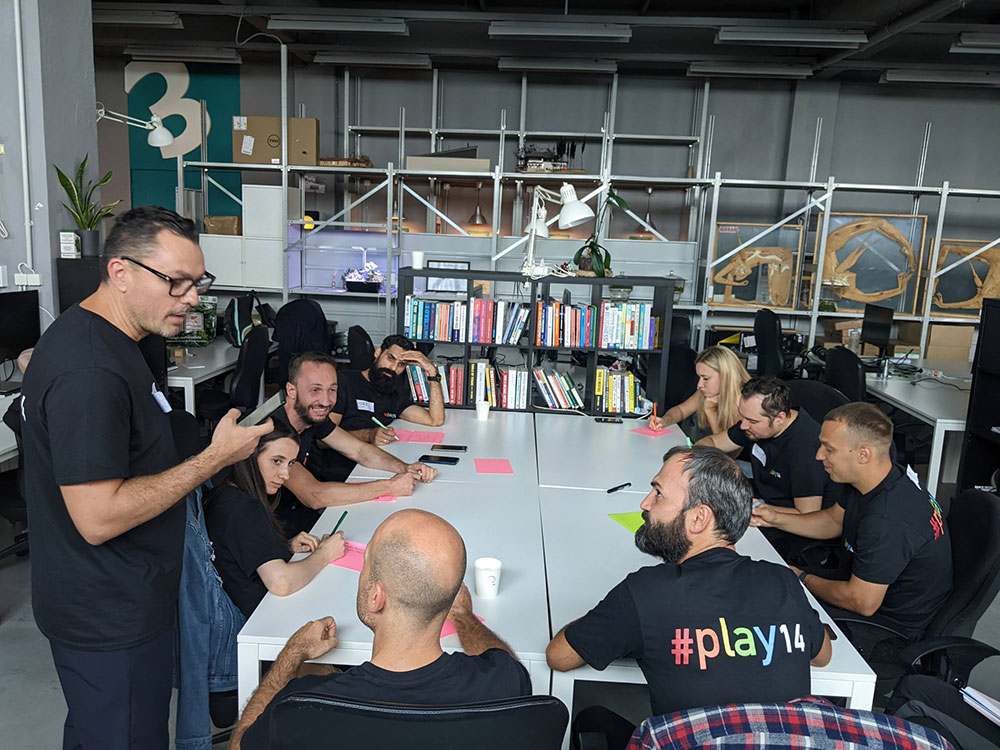
As a freelancer, she discovered an unexpected openness and goodwill from her clients for Ukrainians working on IT projects: "Finding clients was not at all difficult. I didn't know how challenging it would be, I didn't know how clients would react when they learned I was from Ukraine, but I found that people actually wanted to work with Ukrainians. I have enough work, I'm not looking for other clients, but I still have offers, there are companies that emphasise they want to work with Ukrainians. It's satisfying for me to hear that. And I discovered at FabLab 1 that it's really great to be a freelancer. When I came here, people have been there for me. I feel comfortable with them, they understand me, we have the same mindset. And I think other people, no matter what country they'd come from, would also be welcomed. At the moment I am the only Ukrainian in FabLab 1, but there are a few IT people from Ukraine in Iași. There are a few companies that have relocated their people here, rented offices for them. Others work from home. I think there are about 30, but I can't say for sure."
A E I O U
That's how Iryna delayed learning Romanian, because at FabLab 1, a team of many IT people, she naturally talks to everyone in English.
"My father proved to be the most successful with Romanian lessons. He is 62 years old and started to learn Romanian around late spring last year. One of his drives is that he wants to keep himself busy with something. He goes to the market, to the Nicolina market, he knows how to order what he wants to buy, how to explain. And we're also taking Romanian classes now. My daughter does better than me, because she can actually communicate during the classes she goes to, she talks to other children. Many Ukrainians didn't start learning the language earlier because they thought they would go back home soon."
In the one year since the war forced them to leave their peaceful lives and put their future on hold, Iryna and her family steadily adapted to the life in Iași and Romania, while they unpacked their bags, learned Romanian and discovered the places and people here. And now she speaks about Iași like a true promoter of the city: "I like Iași very much. I think we are lucky to have settled here. I haven't visited many other Romanian cities, but here you can see a lot of vegetation. In Iași we like the city centre, the Hamac adventure park, the Ciric recreational park, the museums in the Palace of Culture, where one can discover interesting things about history, and even the history of Ukraine, I like the university library. I also went to the Red Lake. Romania is quite a beautiful country. This was a shock. I didn't know anything about Romania, although we are neighbours. I knew a lot about Poland, I've been there many times, but Romania proved to be so wonderful, beautiful nature, mountains, rivers. Soon we will go to visit Brașov. But in Iași I like the vibe, there are a lot of students, it's a young, dynamic city. I was very impressed back in October. We arrived in the spring, the summer turned out ok, but in October, wow, the city was filled with so many students."
Today is precious
The war changed them: 'I filmed a short clip of us in January and when I looked at the footage I couldn't believe how much we changed since last year. We look so old. So unhappy. We're not smiling."
But this is not the only change Iryna notices in herself and her family: "I never planned to leave Ukraine. I didn't even think I was strong enough for such a change. But I learned that we don't need much to be happy. If your family is alive and healthy and you have a pair of jeans and some slippers, then you are OK. And the biggest realization is that now I know I can do this. I can leave with my folks, we can survive. We can do this."
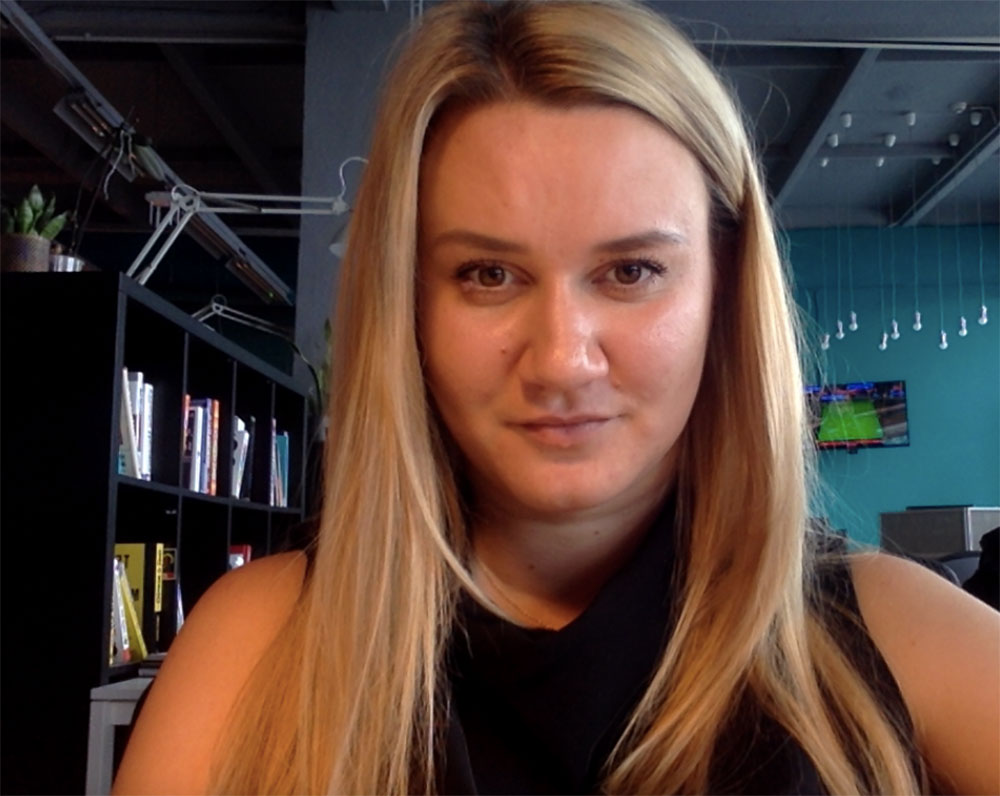
Waiting for the reconstruction of Ukraine and her return home, Iryna gained financial independence and autonomy as a freelancer in Romania, and she is already building strong connections with the people around her. And while she only thinks about returning to Ukraine, she's committed to returning here as a tourist. For now, however, she has a plea for Romanians: "Ukrainians are still refugees. When you see an Ukrainian, give them a smile. That will encourage them. I have lots of people around me smiling, and that reminds me that today is a day worth living. Smile, that means a lot to us!"








